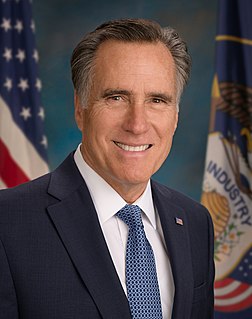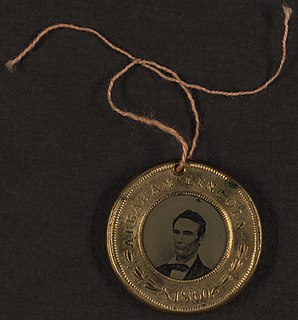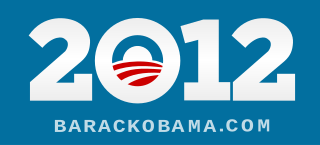Related Research Articles
A voicemail system is a computer-based system that allows users and subscribers to exchange personal voice messages; to select and deliver voice information; and to process transactions relating to individuals, organizations, products, and services, using an ordinary phone. The term is also used more broadly to denote any system of conveying a stored telecommunications voice messages, including using an answering machine. Most cell phone services offer voicemail as a basic feature; many corporate private branch exchanges include versatile internal voice-messaging services, and *98 vertical service code subscription is available to most individual and small business landline subscribers.

Willard Mitt Romney is an American politician, businessman, and lawyer serving as the junior United States senator from Utah since January 2019, succeeding Orrin Hatch. He served as the 70th governor of Massachusetts from 2003 to 2007 and was the Republican Party's nominee for president of the United States in the 2012 election, losing to Barack Obama.

The Iowa caucuses are biennial electoral events for members of the Democratic and Republican parties in the U.S. state of Iowa. Unlike primary elections in most other U.S. states, where registered voters go to polling places to cast ballots, Iowans instead gather at local caucus meetings to discuss and vote on the candidates. During both the presidential and midterm election seasons, registered Iowan voters vote in a per-precinct caucus for the party of which they are registered as a member. The caucuses are also held to select delegates to county conventions and party committees, among other party activities.

A political campaign is an organized effort which seeks to influence the decision making progress within a specific group. In democracies, political campaigns often refer to electoral campaigns, by which representatives are chosen or referendums are decided. In modern politics, the most high-profile political campaigns are focused on general elections and candidates for head of state or head of government, often a president or prime minister.

"Get out the vote" or "getting out the vote" (GOTV) describes efforts aimed at increasing the voter turnout in elections. In countries that do not have or enforce compulsory voting, voter turnout can be low, sometimes even below a third of the eligible voter pool. GOTV efforts typically attempt to register voters, then get them to vote, by absentee ballot, early voting or election day voting. GOTV is generally not required for elections when there are effective compulsory voting systems in place, other than perhaps to register first time voters.
In politics, a dog whistle is the use of coded or suggestive language in political messaging to garner support from a particular group without provoking opposition. The concept is named for ultrasonic dog whistles, which are audible to dogs but not humans. Dog whistles use language that appears normal to the majority but communicates specific things to intended audiences. They are generally used to convey messages on issues likely to provoke controversy without attracting negative attention.
Microtargeting, often used by political parties and election campaigns, includes direct marketing datamining techniques that involve predictive market segmentation. It is used by the United States Republican and Democratic political parties, as well as candidates to track individual voters and identify potential supporters.
The political positions of Mitt Romney have been recorded from his 1994 U.S. senatorial campaign in Massachusetts, the 2002 gubernatorial election, during his 2003–2007 governorship, during his 2008 U.S. presidential campaign, in his 2010 book No Apology: The Case for American Greatness, during his 2012 U.S. presidential campaign, and during his 2018 senatorial campaign in Utah. Some of these political positions have changed, while others have remained unchanged.

Ann Lois Romney is an American equestrian, author, and philanthropist. She is the wife of businessman and politician, Senator Mitt Romney of Utah. From 2003 to 2007, Romney was First Lady of Massachusetts, while her husband served as governor.

The Mike Huckabee 2008 presidential campaign began on January 28, 2007, when former Governor of Arkansas Mike Huckabee announced his candidacy for the Republican nomination for President of the United States for the 2008 election. Huckabee ultimately ended his bid for the nomination after losing the Texas Republican primary on March 4, 2008.

The public image of Mitt Romney is how Americans view Mitt Romney. Romney's popularity has grown since his 2008 campaign for president. Included is a discussion of Romney's personal and political image as well as his values and affiliation with The Church of Jesus Christ of Latter-day Saints with attention given to Romney's 2008 "Faith in America" speech.

The 2012 United States presidential election was the 57th quadrennial presidential election, held on Tuesday, November 6, 2012. Incumbent Democratic President Barack Obama and his running mate, incumbent Vice President Joe Biden, were re-elected to a second term. They defeated the Republican ticket of businessman and former Governor Mitt Romney of Massachusetts and Representative Paul Ryan of Wisconsin.

The 2012 presidential campaign of Barack Obama began on April 4, 2011, when Barack Obama, the 44th president of the United States, announced his candidacy for re-election as president On September 5, 2012, he again became the nominee of the Democratic Party for the 2012 presidential election. Along with his running mate, Vice President Joe Biden, Obama was opposed in the general election by former Massachusetts Governor Mitt Romney, along with various minor candidates from other parties. The election took place on Tuesday, November 6, 2012.

The 2012 presidential campaign of Mitt Romney officially began on June 2, 2011, when former Massachusetts governor Mitt Romney formally announced his candidacy for the Republican Party nomination for President of the United States, at an event in Stratham, New Hampshire. Having previously run in the 2008 Republican primaries, this was Romney's second campaign for the presidency.
The 2012 presidential campaign of Stewart Alexander, democratic socialist political activist, began informally shortly after the 2008 presidential election. Having campaigned for the nomination of the Socialist Party USA in 2008 and ultimately becoming the Vice Presidential nominee of that party for that election year, Alexander was frequently mentioned as a possible candidate for the 2012 Socialist Party USA presidential nomination.
The Occupy Wall Street demonstrations garnered reactions of both praise and criticism from organizations and public figures in many parts of the world. Over time, a long list of notable people from a range of backgrounds began and continue to lend their support or make reference to the Occupy movement in general.

Barack Obama won the 2008 United States presidential election on November 4, 2008. During campaign, by using social media and mobilizing the general public online, Obama was able to raise awareness and financial support of his campaign. Obama used over 15 social networking sites.
"You didn't build that" is a phrase from a 2012 election campaign speech delivered by United States President Barack Obama on July 13, 2012, in Roanoke, Virginia. In the speech, Obama stated, "Somebody helped to create this unbelievable American system that we have that allowed you to thrive. Somebody invested in roads and bridges. If you've got a business, you didn't build that." The sentence "If you've got a business, you didn't build that" was publicized by his political opponents during the 2012 presidential campaign, as an attack by Obama on business and entrepreneurs. The Obama campaign responded that the criticisms were taking the phrase out of context, and the word "that" in the phrase was referring to the construction of "roads and bridges" in the previous sentence.
In late October 2012, the post-tropical cyclone once known as Hurricane Sandy made landfall in New Jersey. By the time it made landfall, it had merged with other storm systems. Though no longer a hurricane, the combined storm caused over $50 billion in damages and cost over 100 lives in the United States.
ORCA was a mobile-optimized web application used as a component of the "get out the vote" (GOTV) efforts for Mitt Romney's 2012 presidential campaign. It was intended to enable volunteers in polling stations around the country to report which voters had turned out, so that "missing" Republican voters and underperforming precincts could be targeted for last-minute efforts to get voters to the polls. According to Romney himself, it would provide an "unprecedented advantage" to the campaign to "ensure that every last supporter makes it to the polls."